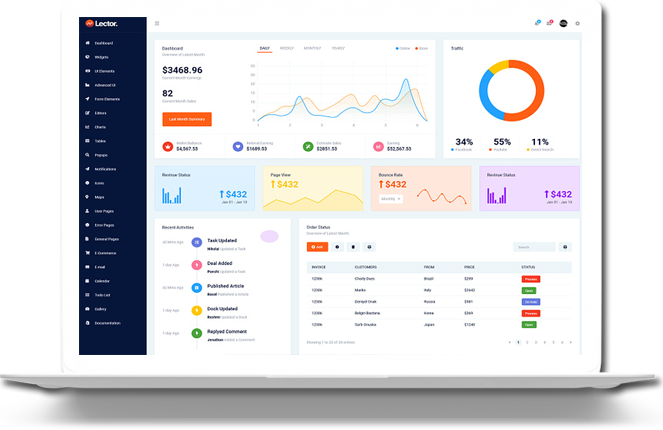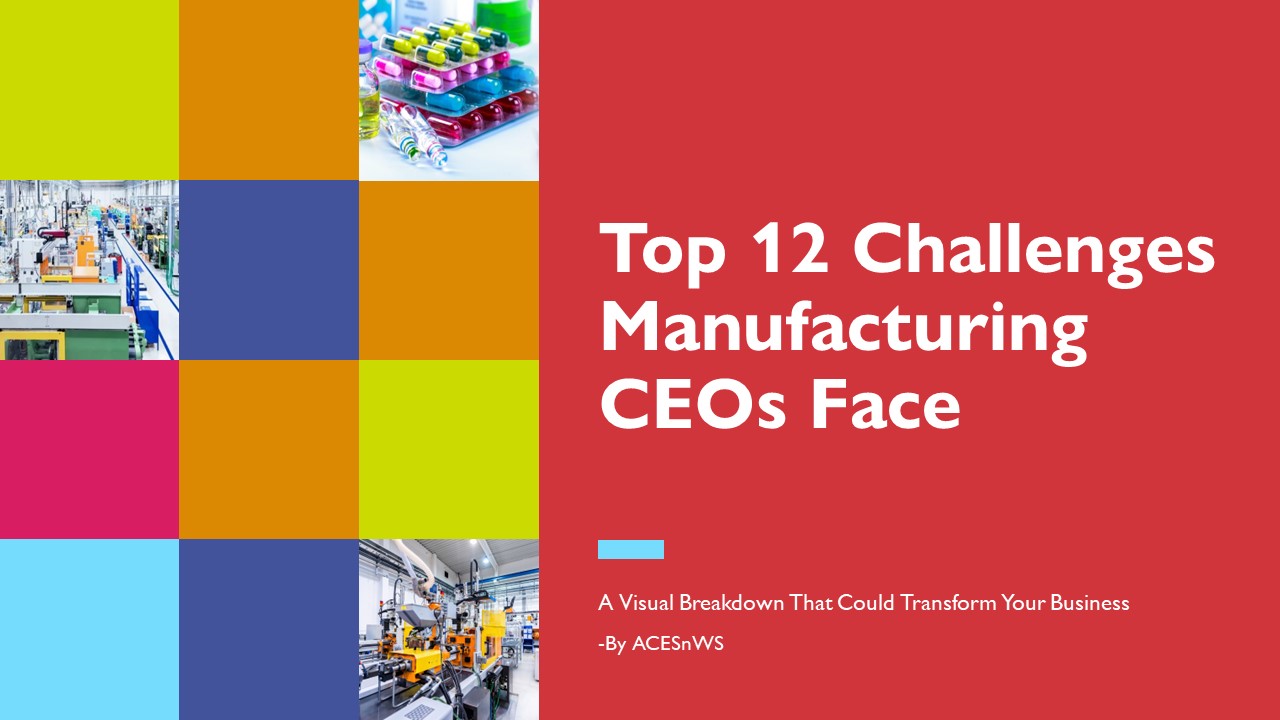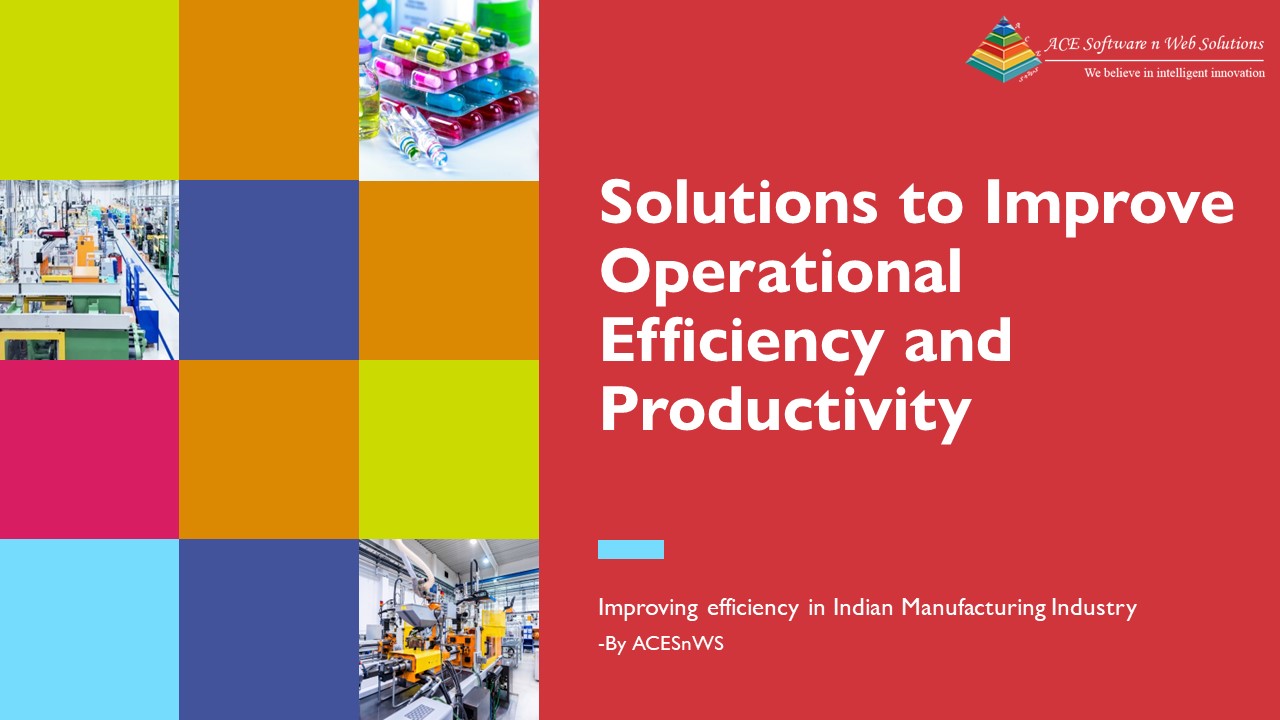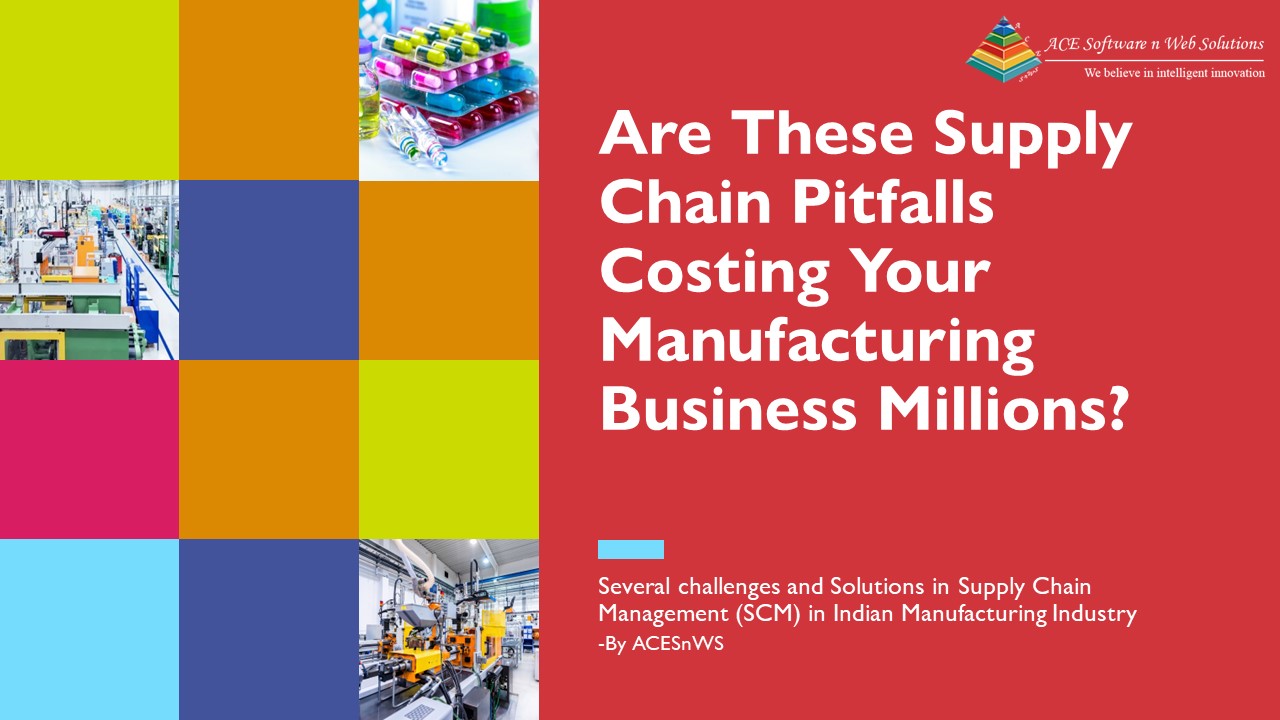Custom ERP
Development? Choose ACESnWS
Custom ERP Software Solution Development is built specifically to address the needs of a particular industry to cater your business processes in your unique style

Custom ERP Software Modules
Custom ERP Software Development with following modules
Why Custom ERP Development?
Importance of customization in ERP solutions, emphasizing that every operation is unique and requires a tailored approach

At ACESnWS, we offer custom ERP solutions designed to streamline your business processes and deliver real-time insights. As a leading ERP software development company, our technical expertise ensures seamless ERP implementation for businesses across industries.
Whether you need ERP consulting for identifying the right solution or seek ERP system development tailored to your specific business needs, we deliver end-to-end development services. Our team ensures all your business requirements are met while simplifying the complexities of data migration from legacy systems.
Custom ERP software development ensures a perfect fit for your unique business processes and requirements, offering flexibility, scalability, and efficiency not always possible with off-the-shelf solutions.
By choosing custom ERP, you gain a system that evolves with your business, ensuring long-term relevance and value.
We help organizations develop custom ERP solutions to manage and automate their time-consuming day-to-day business activities for a more streamlined workflow
Our custom ERP software development services reduce time-consuming manual tasks by automating key operations like inventory management and human resources management. Gain real-time insights into your operations for faster decision-making.
ERP Benefits
Transform Your Business Operations with Unmatched Benefits
ERP Development Process
From Idea to Implementation A Step-by-Step Look at Building High Performance Software Development
Requirements & Analysis
Identify client needs and project objectives. Analyze business processes workflows
System Design & Development
Based on the initial analysis, we design a system architecture that meets your specific needs. Our team of experts develops and rigorously tests the ERP software for quality assurance.
Testing & Implementation
Testing the integration points between the ERP components and external systems to ensure data consistency and flow.
User Training & Support
We ensure a smooth transition with full implementation support and comprehensive training for your team.
Custom ERP Vs. Ready-made ERP
A comparative analysis to help understand which might be more suitable for specific business needs
| Criteria | Custom ERP Development | Ready-Made ERP Solutions |
| Advantages | ||
| Tailored Solution | Designed to meet the unique requirements of a business, fitting seamlessly with existing processes | Generic solutions may require adapting business processes to fit the software |
| Scalability | Can be modified to accommodate new processes, departments, or functionalities as the business grows | May offer limited scalability options compared to custom solutions |
| Competitive Edge | Offers unique functionalities that can provide a competitive advantage | Using a solution that many competitors also use might limit distinct competitive advantages |
| Integration Capabilities | Designed to seamlessly integrate with existing software, ensuring smooth interoperability | May face challenges in integrating smoothly with existing systems or third-party applications |
| Challenges | ||
| Higher Initial Costs | Requires significant upfront investment in development, testing, and deployment | Generally less expensive upfront, with subscription-based models spreading out costs |
| Longer Implementation Time | Takes longer to develop and implement than off-the-shelf solutions | Can be deployed much faster since the core software is already developed and tested |
| Requires Expertise | Needs a reliable development team with a clear understanding of business processes | Relies on the vendor for expertise, reducing the need for in-house specialized knowledge |
| Ongoing Maintenance | The company is responsible for maintenance, updates, and security, which can be costly | Vendors typically provide ongoing support, regular updates, and security patches |
| Decision Factors | ||
| Budget and ROI | Consider the total cost of ownership and potential ROI over the short and long term | Evaluate upfront costs vs ongoing subscription fees and potential limitations on customization |
| Business Complexity | More suitable for businesses with unique and complex processes | Better for companies with standard processes that fit well within the solution’s capabilities |
| Growth and Scalability | Essential if anticipating significant growth or changes in business processes | Consider if the solution scales with your business needs without significant additional costs |
| Time to Market | If the timeline allows for custom development, this option can offer tailored benefits | Preferred for businesses needing quick deployment to meet market demands or operational needs |
Cost Affecting Factors
Web applications are developed in many technologies, we have expertise in all
Functional scope
How many workflows a solution can cover; the number of functional modules (financial management, supply chain management, sales and distribution, procurement, order management, etc.)
Integration capacity
The number of integrations with internal and external systems, pre-built connectors for future integrations, the openness of the solution’s architecture
Data management activities
Data cleansing, reformatting, and migration activities
Technology stack
The cost of third-party solutions used to build an ERP platform, licensing fees for storage and computing, and hardware-related costs
Team composition and team size
.
A standard team composition includes a project manager, a business analyst, UX/UI designers, solution architect, back-end/front-end/full-stack developers, QA engineers, and a DevOps engineer
Training activities
.
Training sessions and support documentation/materials/manuals for end-users
Support level
.
Any maintenance activities to ensure the smooth operation of the software, regular updates and upgrades, and user support
Other Platform Integrations
Integrate your ERP with many other Hardware or Software with API support
Advanced Technologies
Powerful tools that transforms the way software is developed to make it more efficient, more effective, and more innovative
Artificial Intelligence (AI) and Machine Learning (ML)
AI and ML enhance ERP systems by automating tasks and providing predictive insights, improving decision-making and operational efficiencies.
Internet of Things (IoT)
IoT technology integrates with ERP systems for real-time data collection from connected devices, optimizing asset management and supply chain operations.
Business Intelligence (BI) and Analytics
BI and Analytics transform data into actionable insights within ERP systems, enabling informed decision-making through dashboards and reporting tools.
Cloud Computing
Cloud-based ERP solutions offer scalable and flexible access to ERP functionalities, supporting remote access and collaboration while ensuring data security.
Robotic Process Automation (RPA)
RPA in ERP systems automates repetitive and rule-based tasks, streamlining operations and improving efficiency by mimicking human actions within digital systems.
Augmented Reality (AR) and Virtual Reality (VR)
AR and VR technologies enhance ERP systems by providing immersive training, maintenance simulations, and visualization of data and workflows, improving understanding and efficiency.

Industries ACESnWS Serve
Our custom ERP solutions cater to a wide range of industries, each with its unique challenges and demands
FAQs
Web applications are developed in many technologies, we have expertise in all
1 How long does it take to develop a custom ERP system?
The development time can vary based on complexity, ranging from a few months to over a year.
2 Can the ERP system integrate with existing platforms?
Yes, our custom ERP solutions are designed for seamless integration with existing platforms and technologies.
3 What industries do you serve?
We develop ERP solutions for a wide range of industries, including manufacturing, retail, healthcare, finance, and more.
Web Application Development
Web applications are developed in many technologies, we have expertise in all
Mobile App Development
Mobile applications are developed as native, cross-platform and web apps, as per client need
eCommerce development
eCommerce are developed customized or tool-based as per client need








AI development
We offer Artificial Intelligence services with Gen-AI, ML, IoT, RPA, AR
AI development
We offer Artificial Intelligence services with Gen-AI, ML, IoT, RPA, AR
-
AI implementation in ERP
AI implementation can enhance various modules and sub-modules within an ERP (Enterprise Resource Planning) system to improve efficiency, decision-making, and automation. Here's a breakdown of some of the ERP modules and their potential AI applications: Financial Management: Accounts Payable (AP): AI can
-
Top 12 Challenges Indian Manufacturing Industry CEOs Face
Top 12 Challenges Indian Manufacturing CEOs Face in Indian companies with a turnover ranging from 10 crore to 50 crore (approximately USD 1.2 million to 6 million) typically face a variety of challenges. Here are some of the common problems
-
Improving efficiency in Indian Manufacturing Industry- Top 7 Solutions
Improving efficiency in Indian Manufacturing Industry for CEOs of manufacturing companies in India with turnovers ranging from 10 crore to 50 crore INR as they face several challenges in operational efficiency and productivity. These challenges can have significant impacts on
-
Are These 7 Supply Chain Pitfalls Costing Your Manufacturing Business Millions?
CEOs of manufacturing companies in India with turnovers ranging from 10 crores (Cr) to 50 crores face several challenges in Supply Chain Management (SCM). These challenges can significantly impact their operations, profitability, and growth. Here are some common SCM problems


































































